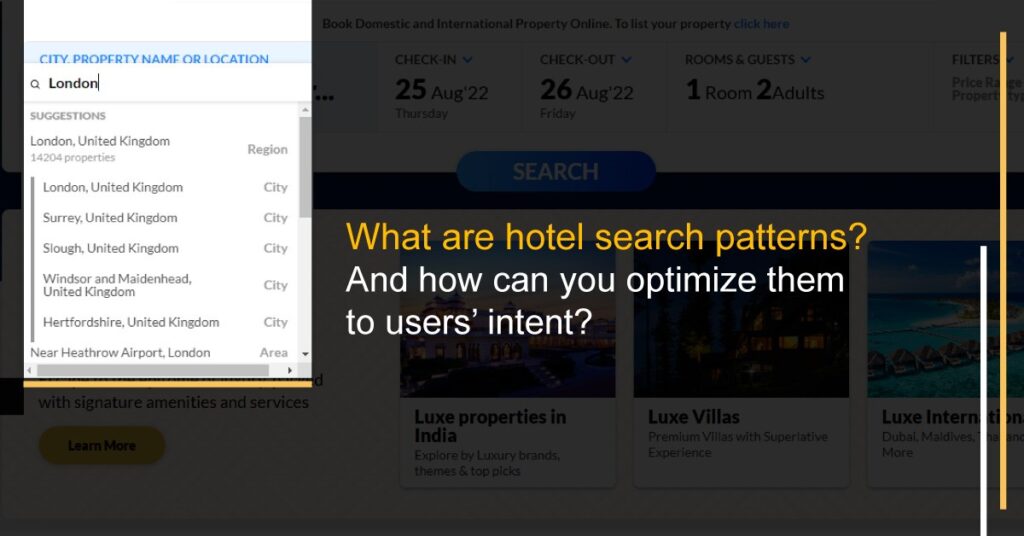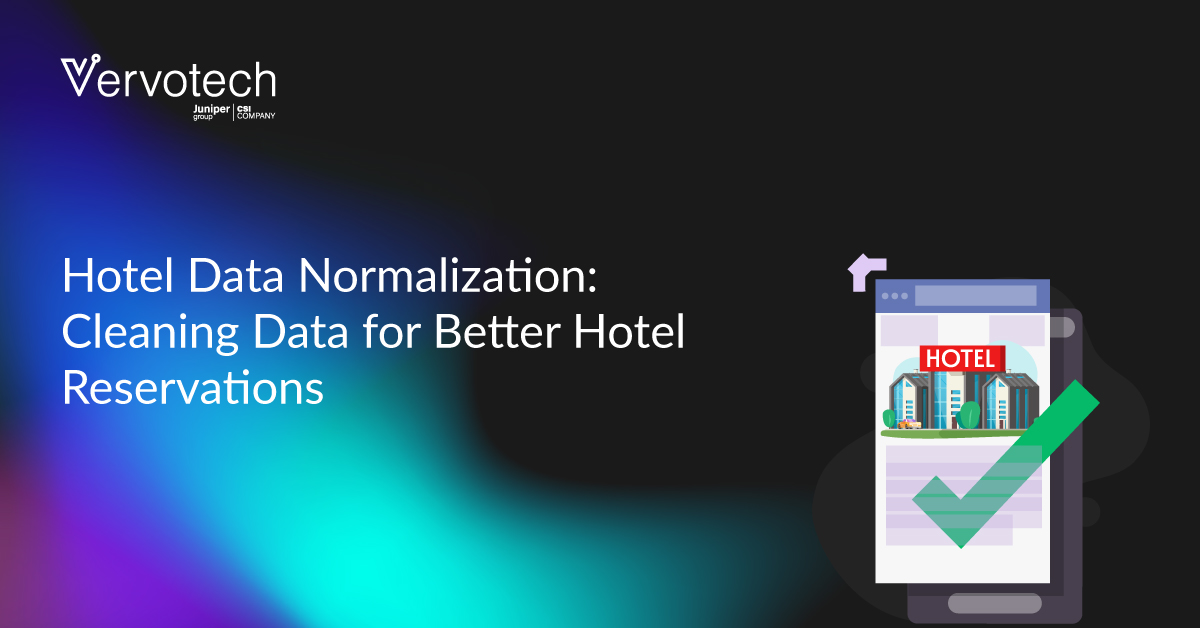People have multiple biases when they come online to book or browse hotels. It is because they all have an abstract image of the experience they are going to have in a property. And their biases affect their search inputs. We call them hotel search patterns. As a travel business, hotel search patterns can go against you as well. Suppose if the search results are too far from customers’ original imagination, they are likely to drop off your website. There are many other ways it can go wrong for you. We will deal with those scenarios further in this piece.
For now, let us stick to how you can make sense of these hotel search patterns, and how you can make them favorable for you. As an online travel enterprise, you already have data on what your audience is putting in your search box. Also, your suppliers provide you with data like hotel ids, airport codes, location codes, and alternate location codes.
You can use multiple combinations of supplier data to display relevant results against a variety of search queries.
Now, the question that might pop up in your mind, how you refine those search results. So, next up, we address the question for you with solutions.
Four ways to refine hotel search results
There are several methods and approaches that you can use to derive refined search results. Here we will walk you through four primary and proven techniques to fetch the most refined search outcomes.
1. Radius based approach

In the radius-based approach, you decide on a standard radius against all potential hotel search queries. And account for all the geotags within that standard radius. This approach helps travelers find the relevant hotels, precisely in the area towards which they already have an inclination.
Hence, you maximize discovery and help your conversion chances through a radius-based approach. The approach is good for use cases like searching on zip codes or specific points of interest like ‘Statue of liberty.’
Also Read – Why Hotel Rate Shopping Software is Pivotal to Strategize Pricing?
2. Polygon based approach

The polygon-based approach helps you cover a broader spectrum of locations.
Let us understand with an example: Suppose there is a search query for a city. With the polygon-based approach, you can account for latitude, longitude, and geotags of the entire periphery of the city.
The above exercise will ensure you do not miss out on any property against a search query. The approach is good for use cases like searching on zip codes or specific neighborhoods. E.g., Southeast Austin.
3. Matching location IDs with hotels
As an online travel website, sometimes you want very granular control over which hotels to be shown when searching for any specific location irrespective of the geographical boundaries of the location. For example, while searching hotels in Paris, FR, you want to fetch the hotels from Montreuil which is one of the nearby localities the core of Paris city.
To cater such hotel search behaviors, you must build your own location content database from multiple location content sources like preferred supplier location content, third party services like Google, TomTom, Four Square etc. Then you can map/tag the set of hotels against every location in your own location database. In short, we have a very customized and controlled mechanism to show the hotels for every location.
This approach helps you display relevant search results when the consumers are not particular about the hotels but specific locations and attractions. The approach is best not only for use cases city-based search but also when you are searching for hotels by point of interest, airports, stadiums. E.g., Times Square. New York
4. Use provider specific location Ids
As we know, most of the leading hotel suppliers have their location content and they have optimized and customized the search results for different regions or cities. So, instead of re-inventing all those search engine nuances, you can leverage their location content directly on your platform. The obvious pre-requisite is to have the formal agreement to access that location content.
This approach works best when your supplier strategy on your platform revolves around a few specific suppliers.
How can you optimize hotel search results to relevance?
So far in this article, we have discussed customer biases and potentially how they can affect hotel search patterns. We also examined how you can refine your search results using different techniques and methods. Now, we come to optimization, how you can optimize your refined search results to relevance.
We are listing a few recommendations for you, and it is not an exhaustive list. But these optimization methods or recommendations give you a great chance to make your search results more precise and relevant.
- Personalized searches
You can make your search results relevant straight up by displaying personalized results. It is an excellent technique to offer quick value to recurring customers. You already have data about what they like, the frequency, the budget ranges, preferred hotel amenities, etc. You can make it easier for them the moment they enter a query in your search box.
- Top selling properties
In general, travelers are risk averse when it comes to choosing a property. They are more likely to go with properties already doing well and have recently offered value to their guests. So, displaying top-selling properties in response to search queries could be a great proposition for your business.
- Review based searches
It is the age of proof of concept and social proof. As we mentioned previously, to minimize the risk or the likelihood of an unpleasant experience, travelers trust the experiences of past travelers and their feedback. So, displaying high-rated properties in response to hotel searches can make the drill easier for you visitors.
- Supplier specific properties
The data you get from your suppliers is not linear in terms of quality. You can identify the suppliers that deliver a better look-to-book ratio and tie only their data to your search box.
Recommended: Leading Hotel Mapping Tools in 2022
Conclusion!
When travelers come to your website and search, the last thing you want is that no result shows up in response to their searched query. If your search box throws up results, it is good. At the same time, if the visitors are coming to your search box, there is a huge opportunity. You can significantly improve your conversion numbers by understanding the search patterns and using search result refinement and optimization techniques explained in this article.









